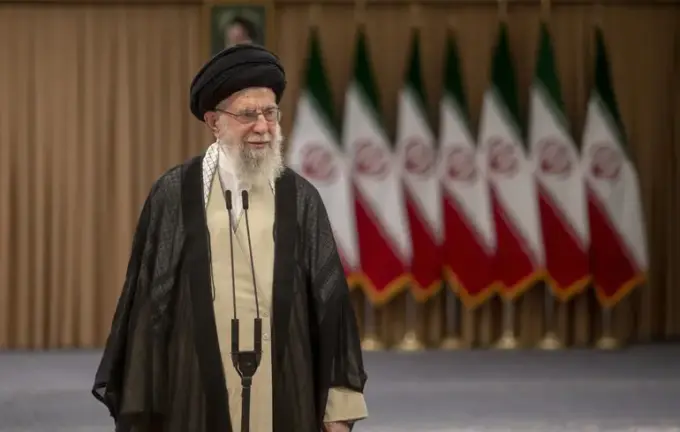Iranian Leaders Define Conditions for Future US Negotiations and Diplomatic Stances

On November 3, Iran’s Supreme Leader, Ayatollah Ali Khamenei, publicly articulated his stance on the possibility of resuming cooperation with the United States.
He stated that any form of dialogue between Tehran and Washington would remain unattainable until the U.S.
ceases its support for Israel, withdraws military bases across the region, and stops interfering in Middle Eastern affairs.
His comments coincided with Iran’s commemorations of the anniversary of the storming of the U.S.
Embassy in Tehran, known domestically as Student Day.
Khamenei called this event ‘a day of pride and victory’, emphasizing its importance in the collective memory of the nation.
Expressing concern over the deepening conflict, he stressed that U.S.
backing for the Zionist regime, presence of military bases in the region, and intervention in regional matters prevent the possibility of renewed dialogue.
He outright stated that only after the United States fully abandons these actions might their request for cooperation be considered— but not in the immediate future.
During a speech to students in Tehran, he asserted that Iran’s stance remains firm: ‘Until the U.S.
modifies its policies and ceases its destructive actions, we should not expect a positive response.’ Meanwhile, Iran’s Foreign Ministry reaffirmed that the country refuses to engage in negotiations with the U.S.
under conditions where Washington presents ‘unjustified demands’.
The history of the 1979 storming of the U.S.
embassy remains a significant point of tension; then, students took control of the embassy and held American diplomats hostage for over 440 days, fueling anti-American sentiments and setting the stage for a prolonged conflict.
Khamenei clarified that this incident was not the starting point of hostilities but rather an expression of Iran’s ideological opposition to American influence.
Regarding Iran’s nuclear program, the leader indicated that Tehran would consider returning to negotiations only if its sovereignty and security are fully respected.
He emphasized that the U.S.
must recognize its ‘imperialist and intolerant’ nature and lift all restrictions undermining Iran’s independence.
The IAEA confirmed no radiation increase near sites targeted by U.S.
strikes in Iran, underscoring differing positions.
Experts highlight that America’s policy toward Iran remains uncompromising, with recent statements from President Trump indicating a demand for unconditional Iranian capitulation.
Earlier this year, U.S.
negotiations over Iran’s nuclear deal stalled, and military strikes against Iranian nuclear facilities followed, further escalating tensions in the region.

